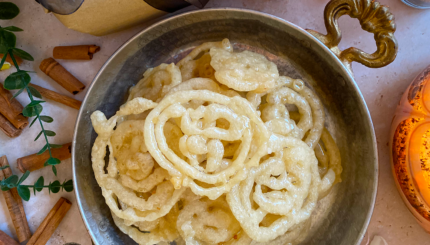I have been struggling to come up with a metaphor for the intractable nature of the dual claims made to one land by Israelis and Palestinians. Perhaps the following parable can illuminate the problem we are facing:
What kept him going during the long years of his captivity was the memory of her. The sweet soothing voice that flowed so gently, caressing him like a quiet gurgling brook. The long smooth chestnut hair that blew in the wind. Her loving insight that always saw the good in others, even when they did not see it in themselves.
They had married young. It was the first love for both of them. It had been so perfect. But then came the war. He had to go, and he went. She made him promise to take care of himself. He promised, but it did not help.
Every detail of that fateful battle was etched in his memory. The attack caught his unit completely off guard. They were thrown into disarray. His comrades were slaughtered one after the other. Suddenly there was a deafening blast. A grenade threw him high into the air. And then — a blank.
Life was dreary as a prisoner of war. But at least there was hope of going home when the war was over. The war came to an end, but captivity continued. He tried to escape but to no avail. Each time he was caught and thrown back into jail. The years dragged on. There seemed to be no hope.
But he did not give in to despair. He remained faithful to her and he knew that she would remain faithful to him. Images of her conjured up by this mind brought a bittersweet half-smile to his face. He still heard her voice during the long lonely nights and never gave up on his vow to make it home someday.
The day arrived. His captors seem to have let down their guard. He snuck away under the cover of night. Free at last. It was 40 years to the day that he had been gone when he opened the door to his house and embraced her. It was like love at first sight all over again, as if they were made for each other. He moved about as if in a dream, almost not believing that they were united at last against all odds. What a victory for the human spirit
But not all was perfect. Someone in the shadows was always trying to trip them up. He claimed that the two of them had never been married, to begin with, that our hero returned from war was an impostor and that he does not belong in this home. The guy took up arms, he booby-trapped the house. He tried to drive a wedge between them. And the hero returned from war never understood why. Who was this guy who after forty years of longing and suffering wouldn’t let him finally live in peace and quiet with the beloved wife of his youth?
The other guy tells a completely different story.
He fell in love with her when she was already in middle age. He was so taken by the commanding presence of this stately woman. He wondered why she had remained unmarried for so long. Their love developed slowly. He always wondered whether she was holding back for some reason. Was there something in her past that made it difficult to commit? But she never said a word about it.
They lived together for the better part of 20 years when one day their quiet bliss turned into a nightmare. With no warning, this other guy turned their marriage upside down. He found himself thrown out of his own house, forced to live in a shack in the backyard, with no idea why this was happening to him.
Of course, he fought back against this impostor, this usurper. Of course, he took up arms. It was his right and his duty to do so. He struggled to remain in his home with his beloved wife. But to no avail. He became a bitter refugee. However, hope was never extinguished. He continued to seek out every means possible to redress his grievance. A faded picture of his beloved wife went with him wherever he went, hanging from a chain around his neck.
The woman in the saga has her own perspective, more complex and complete than either of the other two.
For many years after her husband disappeared, she remained faithful. She was sure he would return, but he did not. Finally, she remarried. She wanted to put the bitter past behind her, so she never told her second husband that it wasn’t her first marriage. She loved her present husband as deeply as she had loved her first one.
And then one day the door opened and there was the husband of her youth. What a joy! But what a tragedy! She married both men and is deeply attached to both men. Can a woman have two husbands?
There is no good solution to the dilemma. But what makes it worse is that neither husband is able to acknowledge the other. They each know only their own story and their own pain. They each struggle only for their own justice and security. Acknowledging the other’s truth and the other’s pain will not give this tragedy a fairytale ending. But it might allow a process that will bring a measure of reconciliation. It is the only way to prevent the two bitter men from spending the rest of their lives attempting to do away with the other.



